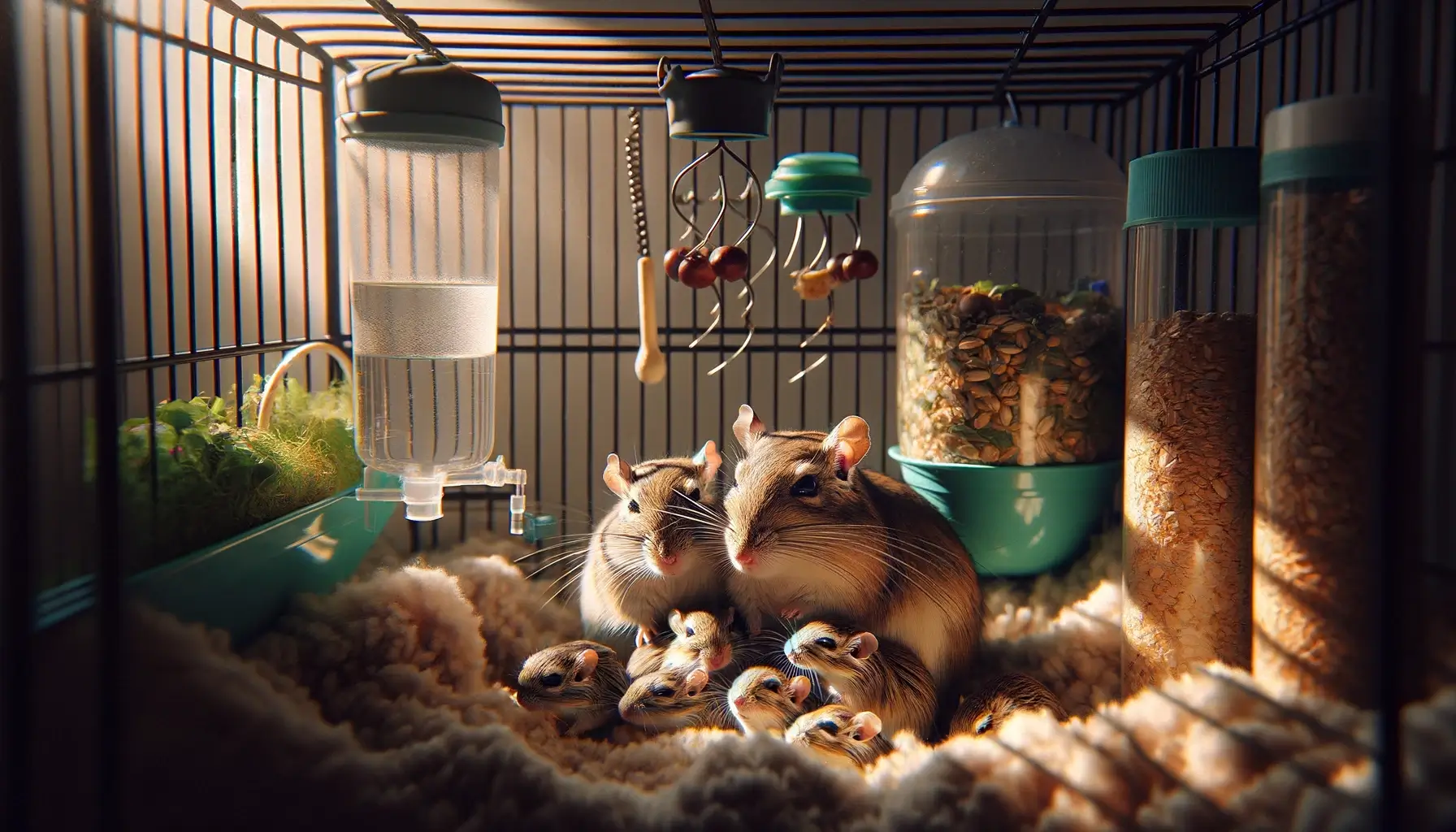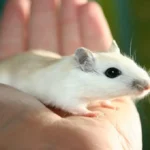Gerbils are adorable, sociable creatures that make fantastic pets for both adults and children alike. However, their rapid breeding can quickly turn a manageable pair of gerbils into an overwhelming situation. Understanding how to control gerbil breeding is essential for any responsible gerbil owner.
In this article we will discuss about gerbil breeding and offer practical advice on how to prevent your furry friends from multiplying beyond your capacity to care for them.
Understanding Gerbil Breeding
Gerbils reach sexual maturity at a surprisingly young age, typically around 3 to 4 months. This early onset of fertility means that male and female gerbils housed together can start breeding much sooner than many owners expect.
The breeding process involves a series of chasing and mounting behaviors, which are often accompanied by foot drumming. A female gerbil’s pregnancy lasts about 24 days, and she can give birth to a litter ranging from 1 to 8 pups.
Remarkably, gerbils can mate again immediately after giving birth, leading to a continuous cycle of reproduction.
Also read: Do Gerbils Have Periods?
Methods to Prevent Gerbil Breeding

Separating Males and Females
The most foolproof method to prevent breeding is to house male and female gerbils separately. While gerbils are social animals that thrive in the company of their kind, keeping genders apart is necessary to control population growth.
Sexing gerbils can be challenging, especially in young pups, but it’s crucial for preventing unintended litters. Adult males are identifiable by their prominent testicles, while females have a shorter distance between their anus and genital opening.
When in doubt, consult a veterinarian or an experienced breeder to ensure accurate sexing.
Environmental Control
Adjusting your gerbils’ environment can also play a role in discouraging breeding. While less effective than separation, maintaining a slightly cooler temperature in the gerbil enclosure can reduce the likelihood of breeding.
However, it’s important to keep these adjustments within safe limits to avoid causing stress or discomfort to your pets. Additionally, minimizing disturbances and maintaining a stable, calm environment can help discourage breeding behaviors.
Surgical Options
For those looking for a more permanent solution, spaying (for females) and neutering (for males) are surgical options available. These procedures not only prevent breeding but can also reduce aggressive behaviors associated with mating.
However, they come with risks and costs that should be carefully considered. Consult with a veterinarian experienced in small animal surgery to discuss the benefits and potential complications of these procedures.
Case Studies and Real-Life Examples of Gerbil Breeding
Many gerbil owners have faced the surprise of an unexpected litter. For instance, Jane, a first-time gerbil owner, thought she had adopted two females, only to discover one was male after a surprise litter.
Through her experience, Jane learned the importance of getting her gerbils sexed professionally and now advocates for separate housing as a foolproof method to prevent breeding.
Another gerbil enthusiast, Mark, shared his approach to managing his gerbils’ environment to discourage breeding. By keeping his gerbils in a room with stable, slightly cooler temperatures and minimizing disturbances, he noticed a significant decrease in breeding behaviors.
These stories highlight the importance of vigilance and the willingness to adapt strategies based on your gerbils’ needs and behaviors.
Alternatives to Breeding
For those who love gerbils but wish to avoid the complications of breeding, there are several rewarding alternatives:
- Adoption: Many gerbils in shelters and rescues are in desperate need of loving homes. Adopting can be incredibly fulfilling, giving a second chance to gerbils who might otherwise go unnoticed.
- Fostering: If you’re not ready for a long-term commitment, fostering provides a temporary home to gerbils in need. It’s also a great way to enjoy the company of gerbils without adding permanently to your family.
These options not only help control the pet population but also enrich your life with the joy of helping animals in need.
FAQs
Can gerbils from the same litter breed?
Yes, gerbils from the same litter can and will breed if given the opportunity. It’s crucial to separate males and females by the time they reach sexual maturity, around 8 weeks old.
How can I tell if my gerbils are pregnant?
Pregnant gerbils may not show obvious signs until the final stages of pregnancy. Look for nesting behavior and a slight bulge in the belly as indicators.
how often do gerbils have babies?
Gerbils can have babies every 4 to 6 weeks, with the female capable of becoming pregnant again shortly after giving birth. This rapid breeding cycle highlights the importance of separating males and females if you wish to prevent continuous litters.
What should I do if my gerbils have already bred?
First, separate the male from the female to prevent further breeding. Ensure the pregnant female has a quiet, comfortable space to give birth and raise her pups. Consult with a vet or experienced breeder for specific care tips.
How to manage an unexpected litter?
An unexpected litter can be overwhelming, but with proper planning, you can find homes for the young gerbils. Reach out to local pet stores, rescues, or online communities dedicated to gerbil care for assistance.
Conclusion
In conclusion, controlling gerbil breeding is crucial for both the well-being of the gerbils and the sanity of their owners. Through separation, environmental adjustments, and responsible ownership, including considering surgical options when appropriate, you can effectively manage gerbil populations.
Remember, the key to success lies in education, preparation, and a commitment to providing the best care for these charming creatures. By taking proactive steps, you can enjoy the company of your gerbils without the worry of unexpected litters.











